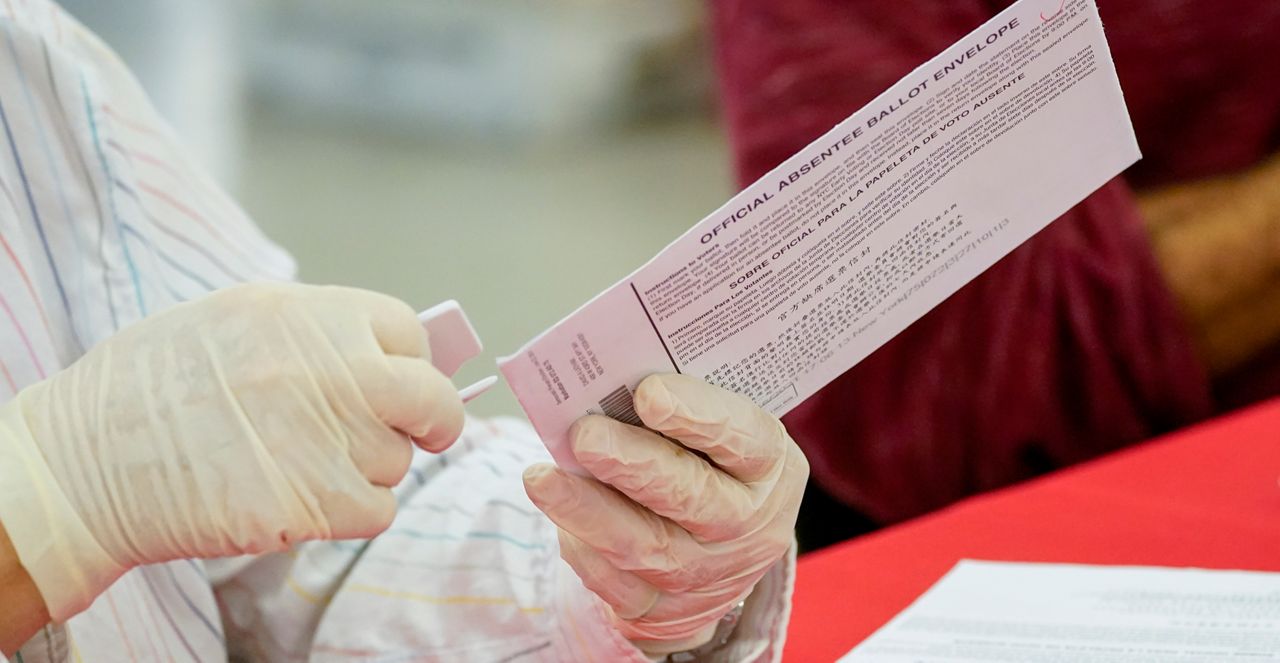MADISON, Wis. (AP) — Wisconsin’s bipartisan elections commission couldn’t agree Tuesday on what guidance, if any, to give the state’s more than 1,800 local clerks to help them understand how to implement a Wisconsin Supreme Court ruling outlawing absentee ballot drop boxes.
The commission, evenly divided between Republicans and Democrats, repeatedly deadlocked on what to tell clerks about what the decision meant and how to interpret it ahead of the Aug. 9 primary. Commissioners said they may consider giving guidance later.
The primary will set the field for the Nov. 8 election where Democratic Gov. Tony Evers and Republican U.S. Sen. Ron Johnson are both on the ballot in high-stakes races. Johnson and Republican candidates for governor have called for disbanding the bipartisan elections commission and overhauling how elections are run in the state.
Republican members of the commission argued that it owed it to the clerks who run elections to help them understand the court’s ruling, while Democrats said the guidance proposed went too far, would confuse clerks and only invited more lawsuits. Not taking any action means the commission is telling clerks “go out and figure it out for yourself,” said Republican commissioner Bob Spindell.
The conservative-controlled Wisconsin Supreme Court on Friday ruled 4-3 that absentee ballot drop boxes are illegal and voters must return their ballots in person either to the clerk’s office or an alternate site. The Supreme Court did not address the question of who can put an absentee ballot in the mail. State law says an absentee ballot “shall be mailed by the elector” but federal law allows for disabled people to receive assistance with their ballot.
Democrats, voting rights groups, advocates for the disabled and others all decried the ruling as making it more difficult for people to vote, particularly the elderly and disabled. They argue that ballot boxes are safe and secure and a better option than relying on the post office, which can be slow in delivering ballots and unreliable.
The elections commission rejected a Republican-backed motion that would have said voters have to present a photo ID when returning an absentee ballot. It also rejected guidance that quoted state law saying that the elector must be the one to mail a ballot.
“It would be inappropriate for us to start making stuff up and I think that’s what this memo does, unfortunately,” Democratic Commissioner Mark Thomsen said of proposed guidance written by commission staff.
Conservatives hailed the court’s ruling as a step toward making elections more safe and secure, even though many Republicans in the past had supported and advocated for the use of absentee ballot drop boxes. Donald Trump has repeatedly asserted, without evidence, that absentee voting in Wisconsin was rife with fraud and fueled his loss in 2020.
Biden beat Trump by nearly 21,000 votes in Wisconsin, a result that has withstood recounts in the two most heavily Democratic counties, numerous lawsuits, a nonpartisan audit and a review by a conservative law firm.
Also on Tuesday, state Rep. Tim Ramthun, a Republican candidate for governor, reintroduced a resolution for the GOP-controlled state Legislature to decertify Biden’s victory. Trump also renewed his call for decertification on Saturday, citing the Supreme Court ruling.
Ramthun is only calling for the presidential race to be decertified — not his race or anyone else elected in 2020. He’s also not calling for decertification of the 2016 presidential race that was won by Trump and where ballot drop boxes were in use. Ramthun’s earlier decertification resolution was not taken up.
“I’m not a conspiracy theorist. I am not,” Ramthun said at a Capitol news conference as his supporters responded with “Amen.”
Ramthun also suggested that ballot drop boxes, voting machines and other equipment may need to be seized by law enforcement.
Ramthun has been one of the loudest advocates in Wisconsin for decertifying Biden’s win. Former Wisconsin Supreme Court Justice Michael Gableman, who was hired by Assembly Speaker Robin Vos under pressure from Trump to investigate the 2020 election, also told lawmakers to consider decertification and then later backed away from it.
Vos and other Republican leaders have rejected decertification as not being legally possible. Attorneys, including conservatives, have also said decertification is unconstitutional and pointless.



